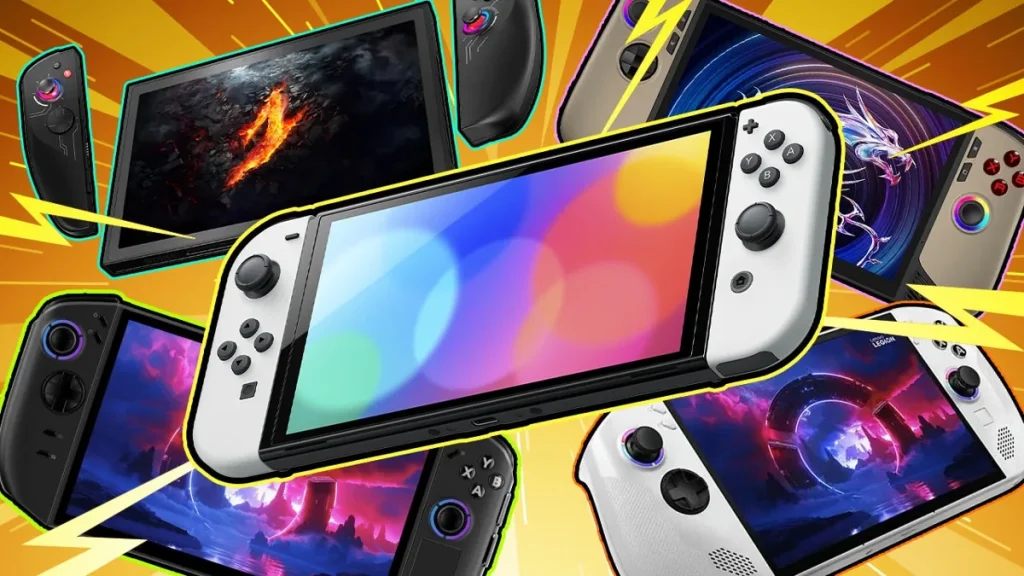Gaming in 2025 isn’t just about fun — it’s a massive global industry, a competitive sport, a cultural movement, and for many, a full-time career. With the continued rise of mobile technology and the loyal presence of gaming consoles, one big question remains:
Console vs Mobile Gaming — who’s winning in 2025?
The answer isn’t as simple as “one is better than the other.” Each platform has its strengths and loyal audiences. But if we look at player numbers, revenue, trends, and accessibility, mobile gaming is edging ahead as the dominant force, though consoles continue to lead in quality, depth, and innovation.
Let’s break it down.
🎮 Player Base: Mobile Takes the Lead
One of the most obvious signs of mobile’s dominance is the sheer number of players. With billions of smartphones in the hands of people across the globe, mobile gaming naturally has the largest reach. Users can easily download any app from https://www.dohistory.com.my/ with a touch.
In 2025:
- Over 2.8 billion people worldwide play mobile games.
- Console gaming, while still strong, sits at around 300–400 million active users, spread across PlayStation, Xbox, and Nintendo platforms.
Example:
In countries like Malaysia, India, and Brazil, smartphones are far more affordable and accessible than consoles. A student in Johor Bahru may not own a PS5, but they’re likely playing Mobile Legends or PUBG Mobile during lunch breaks.
Verdict: ✅ Mobile wins on player volume.
💰 Revenue Generation: Mobile Is a Money Machine
In 2025, mobile gaming is responsible for over 50% of global gaming revenue, surpassing both PC and console combined. This comes largely from:
- In-app purchases
- Ad-based revenue
- Subscription passes (e.g., Apple Arcade, Google Play Pass)
Console gaming, while still lucrative through AAA game sales and online services like PlayStation Plus or Xbox Game Pass, doesn’t match mobile’s volume.
Example:
Free-to-play games like Genshin Impact and Honor of Kings have generated billions, despite costing users nothing upfront.
Verdict: ✅ Mobile wins on revenue.
🕹️ Game Quality & Immersion: Console Still Rules
Here’s where console gaming stands tall. When it comes to graphics, storytelling, mechanics, and immersion, consoles continue to offer superior experiences.
- Games like The Last of Us Part III, Elden Ring 2, and Final Fantasy XVII deliver emotional narratives, expansive worlds, and breathtaking visuals — things mobile games can’t yet replicate fully.
- Consoles also provide better hardware: controllers, 4K TVs, haptic feedback, surround sound, and less latency.
Example:
A gamer in Sydney looking for a deep 60-hour RPG adventure will likely turn to a PlayStation 5 — not a phone — for the full experience.
Verdict: ✅ Console wins on experience quality.
🔄 Accessibility & Portability: Mobile Wins Again
Mobile gaming wins hands down when it comes to convenience.
- You don’t need a TV, cables, or a dedicated space.
- You can game on the bus, during class breaks, or in bed before sleep.
- Almost every phone can run some form of game — even budget devices.
Example:
In rural areas of Southeast Asia or Africa, mobile gaming provides an entry point to digital entertainment that would otherwise be inaccessible due to the cost and power requirements of consoles.
Verdict: ✅ Mobile wins on accessibility.
🧠 Esports & Competitive Gaming: Closer Than You Think
You might think esports belongs to consoles or PCs — but mobile gaming is catching up fast.
- Games like PUBG Mobile, Free Fire, and Mobile Legends have regional leagues, world tournaments, and prize pools worth millions.
- Console still dominates with games like FIFA, Street Fighter, and Call of Duty, but mobile tournaments are becoming mainstream, especially in Asia.
Example:
The M4 World Championship for Mobile Legends in 2023 drew more than 4 million concurrent viewers — rivaling some console-based esports finals.
Verdict: 🔁 Tie – Mobile is rising fast, console still holds prestige.
🧱 Game Development & Ecosystem
Console gaming has long development cycles and bigger budgets, resulting in premium, polished games. Development studios work for years on a single title.
Mobile gaming, however, focuses on agility — small updates, seasonal events, and rapid deployment. Many indie developers have found success through quick-launch APKs and targeted niche audiences.
Example:
A studio like Naughty Dog takes 5–6 years to develop a console title. In contrast, mobile game studios may release 2–3 games annually and update them weekly based on user data.
Verdict: ✅ Mobile wins on speed & scalability; console wins on depth.
🔮 Future Trends: The Lines Are Blurring
Interestingly, the gap between console and mobile is shrinking.
- Cloud gaming services like Xbox Cloud Gaming, GeForce NOW, and PlayStation Remote Play now let you stream console-quality games on mobile.
- Newer phones support external controllers, 120Hz displays, and console-like performance.
- Some mobile games like Diablo Immortal or Call of Duty Mobile are becoming as graphically demanding as older-gen console titles.
What does this mean?
Mobile is evolving, and console-level experiences may soon be playable from your phone.
Who is Winning?
📱 Mobile gaming is winning in reach, revenue, and accessibility.
🎮 Console gaming is winning in experience, quality, and prestige.
In 2025, the winner depends on your perspective. If you’re chasing mass adoption and on-the-go fun, mobile is king. If you want deep, cinematic gaming experiences, console still reigns supreme.
But one thing’s for sure — no matter your device, gaming is thriving like never before.
